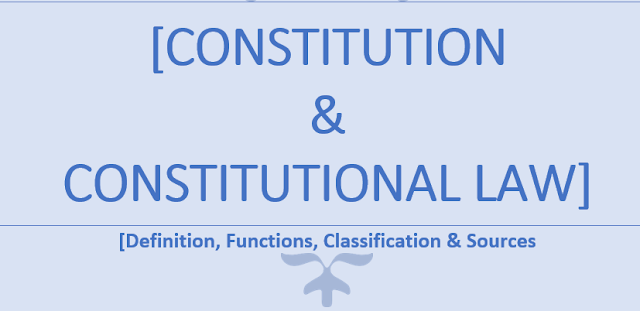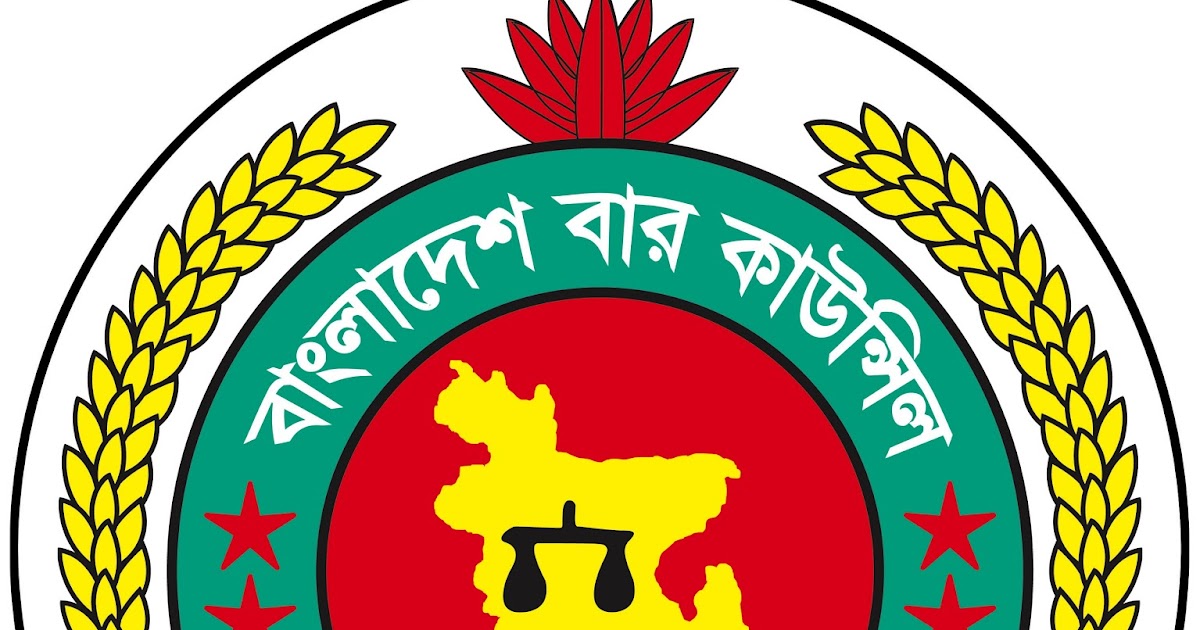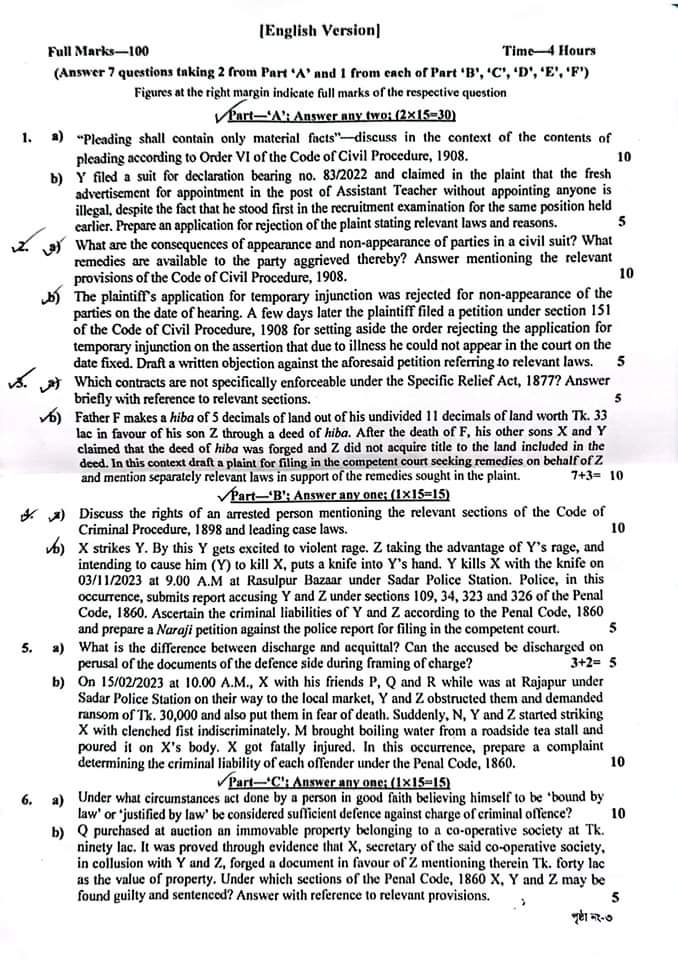Constitution and Constitutional Law in Bangladesh: Definition, Functions, Classification and Sources
Definition of Constitution:
Constitution is said to be the foundation of a state. A constitution determines how a state is run. A constitution is the set of fundamental rules and practices about the composition, functions and powers of the principal institutions of the state i.e., the legislature, the executive, and the judiciary.
Black’s Law Dictionary defines constitution as:
“The fundamental and organic law of a nation or state that establishes the institution and system of government, defines the scope of governmental sovereign powers, and guarantees individual civil rights and. civil liberties.”
Elliot Bulmer in his write-up named “What is a Constitution? Principles and Concepts” in defining constitution laid down the following words:
“The vast majority of contemporary constitutions describe the basic principles of the state, the structures and processes of government and the fundamental rights of citizens in a higher law that cannot be unilaterally changed by an ordinary legislative act. This higher law is usually referred to as a constitution.”
Classification of Constitution:
The constitutions prevalent in the world can be categorized from many aspects, some of these are
Codified (Written) and Uncodified (Unwritten) Constitutions: Codified constitution is the constitution which is written in the constitutional document. Normally a written constitution becomes a supreme law such as constitution of the USA and Bangladesh. On the other hand uncodified or unwritten constitution is not contained in any written document, for example, the constitution of UK.
Flexible and Inflexible (rigid) Constitutions:
Constitution that can be changed or amended in ordinary law making process by the parliament is called flexible constitution such as UK Constitution. On the other hand a rigid or inflexible constitution cannot be changed by the parliament in ordinary law making process like Bangladesh and USA Constitution. To be clear, unlike other bill, to be passed a bill to amend the constitution, the votes of two-third majority of the members of parliament are required.
Federal and Unitary Constitutions:
In a federal system such as the one in the US, it can also be said that the constitution is a “federal” constitution, instead of a “unitary” one like in Bangladesh.
Functions of a Constitution:
1. Constitutions can declare and define the boundaries of the political community. For example, the 1st part of the Constitution of Bangladesh identifies the name and boundary of the republic. (Articles 1 & 2)
2. Constitutions declare and define the nature and authority of the political community or a state. Articles 1 & 2 of the Constitution of Bangladesh can be the best example of this function of the constitution.
3. They often declare the state’s fundamental principles of state policy and where its sovereignty lies. For example, 2 nd para of the preamble to the constitution of Bangladesh provides……. “Pledging that the high ideals of nationalism, socialism, democracy and secularism, which inspired our heroic people to dedicate themselves to, and our brave martyrs to sacrifice their lives in, the national liberation struggle, shall be the fundamental principles of the Constitution”
4. Constitutions can establish and regulate the political institutions of the community. Constitutions define the various institutions of government; prescribe their composition, powers and functions; and regulate relations between them. Almost all constitutions like ours establish legislative, executive and judicial branches of government.
5. Constitutions can declare and define the rights and duties of citizens. Most constitutions include a declaration of fundamental rights applicable to citizens i.e. Part III of the Constitution of Bangladesh ensures fundamental rights of citizens of Bangladesh
6. Constitutions can declare the official religious identity of the state.
7. Constitutions help the state to identify particular social, economic or developmental goals.
Constitution and Constitutional Law:
If we regard constitution as a legal instrument, it can be termed as the supreme law of the land, and provides the standards that ordinary statutes have to comply with. Constitution and constitutional law may be distinguished in following two senses:
In strict sense constitutional law is only limited to some particular parts of the constitution those are judicially enforceable. For example, fundamental rights ensured in part three of the Constitution of Bangladesh are judicially enforceable as such they are constitutional law where as fundamental principles of the state policy in part two are not judicially enforceable.
But in broader sense constitutional law includes something more than what is contained in a constitution. In this sense, constitution itself, constitutional convents, precedents etc. are regarded as constitutional law.
Sources of Constitutional law:
Following sources of constitutional law are contained by Mahmudul Islam in his book Constitutional law of Bangladesh:
1. Legislation is an important source of constitutional law:
“For various reasons which need not be detailed here, a constitution does not make provisions for all conceivable matters but leaves them to be provided by legislation. The Constitution of Bangladesh stipulates that the provisions of the General Clauses Act, 1897 shall apply to the interpretation of the Constitution.' For the meaning of 'citizen' reference must be made to the Citizenship Act.”
2. Precedents:
Judicial decisions make up a considerable portion of constitutional law.
3. The law and custom of parliament is a source of constitutional law.
It consists of the rules relating to the functions, procedure, privileges and immunities of parliament, its members and committees.
4. Constitutional Conventions:
Conventions are generally distinguished from law and are treated as non-legal rules.
5. Authoritative works:
These are also treated as a source of constitutional law, though such works have only persuasive value.
Status of the Constitutional Law in Bangladesh:
Definition of Law as per art 152 of the Constitution of BD:
"law" means any Act, ordinance, order, rule, regulation, bye-law, notification or other legal instrument, and any custom or usage, having the force of law in Bangladesh”.
Chronological sequence of Applicable laws in Bangladesh:
1. The constitution of Bangladesh
2. Act, ordinance, order
3. Rules, regulation, bye-law, notification or other legal instrument
4. Any custom or usage having the force of law in Bangladesh
In Bangladesh the Constitution
being the Supreme law of the land always prevails. (Article 7 of the
Constitution) With some exceptions ‘upper one’ always prevails over the lower
categories but the personal laws shall be preferable for personal matters of
respective community. But, if any contradiction is arisen between two laws of
same category, the latest one shall prevail.






